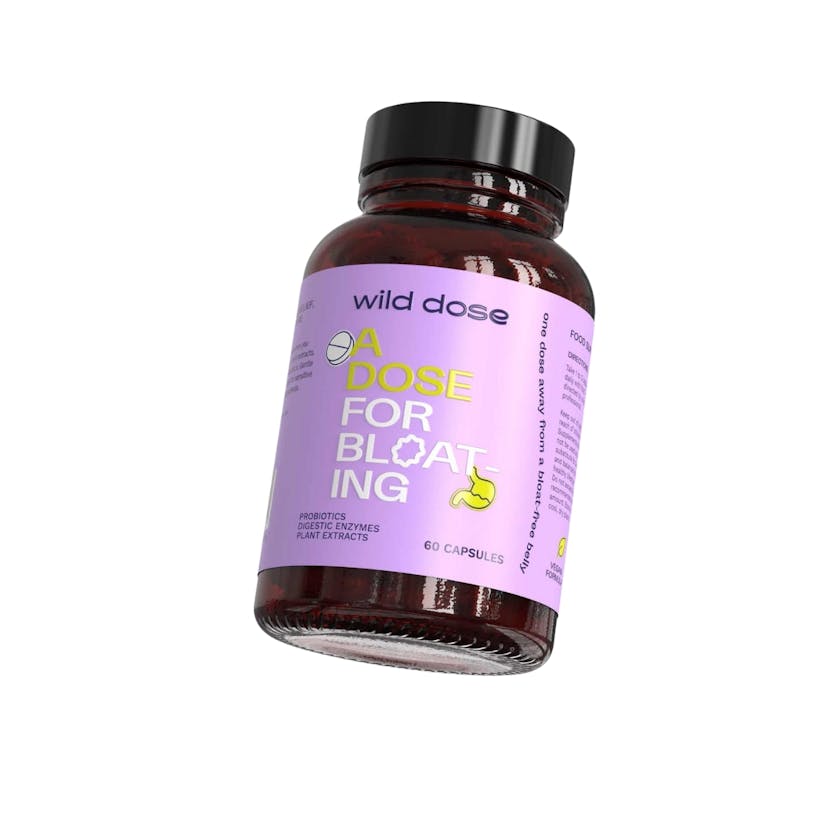How To Look After Your Digestive System During The Seasonal Festivities
7 minutes read
Did we hear the sound of Jingle Bells? Yep, along with Christmas songs on the radio, the supermarkets are saturating their aisles with tempting treats and festive goodies. Plus, the party season is starting to hot up earlier every year with Christmas Do’s beginning in November – it’s hard to resist the temptations all around us.
The British Dietetic Association reveals that 73% of Brits don’t think about their calorie intake over the festive period. An average Brit will consume an extra 19,381 calories in food and drink during December. This contributes to weighing up to seven pounds heavier after the festive period, experts say.
During 25 December alone, we consume 6,000 kcals on Christmas day – that’s enough food for around 2-3 days for the average person.
Realistically speaking, who can stop on Christmas day? The tempting turkey with stuffing, roasted potatoes and Christmas pudding is not something we get served daily. Many nutritionists agree that a day of overindulgence won’t be a problem if you go back on track the next day.
The dilemma only starts if you eat and drink excessively for a month or two. There and then, you’ll compromise your gut health, which slumps your mood, energy levels and physical health now and in the long term.
We ask UK’s top nutritionists for the top 11 golden rules regarding festive digestion. Take note. Your gut will thank you for it.

What causes digestive issues during the holidays?
There are five common causes of digestive issues we all experience during the holidays.
1. Eating generous portions
Eating and drinking in excess are only fun while it lasts. After a while, it can leave us with an unpleasant feeling, putting a tremendous strain on our digestive system and resulting in bloating, indigestion, and constipation.
“Overeating can cause discomfort such as heartburn. It can also take too long to digest, which can lead to problems with the microbiome leading to excess gas and bloat,” Natasha Alonzi, registered nutritional therapist and wellbeing coach, tells Beauty Daily.
2. Consuming vegetables you don’t typically consume, especially cruciferous
Brussels sprouts are the quintessential Christmas dinner veggie Brits enjoy over the holidays. The UK consumes more Brussels sprouts than any other European country. However, Brussels sprouts, along with other cruciferous vegetables like broccoli, cabbage, asparagus, and cauliflower, are known to cause excess gas and bloat. So, be warned.
3. Disrupted sleep schedule, eating the wrong foods at the wrong time
Consuming heavy meals and going to bed on a full stomach increases heartburn. It can make your digestive system work overtime to digest all that food, keeping you up at night. In addition, consuming greasy, fatty, and heavy foods also stresses your stomach.
This can have an enormous impact on the quality of your sleep, according to Eli Brecher, nutritionist and founder of Eli Brecher Nutrition.
“We tend to consume more high-sugar and high-fat comfort foods and increase our alcohol consumption. In addition, we may be overdoing it with late nights, social events, and Christmas parties, leading to a lack of sleep. All these factors can negatively impact our gut microbiome (the trillions of bacteria and other organisms that live inside our guts), causing digestive issues and influencing our mood, skin, and weight,” she explains.
A Swedish study found that a couple of bad nights’ sleep altered the gut microbiome. The number of strains did not change, but the number of healthy bacteria in the sleep-deprived group dropped by 50%.
4. Drinking excess alcohol
For some people, drinking too much at Christmas is simply a case of seasonal overindulgence. However, it can lead to drying up the stools, causing constipation. It will also slow down digestion after a rich calorific meal.
Alonzi explains: “Alcohol interferes with stomach acid production. Stomach acid kills any unwanted pathogens in the stomach, helping to prevent stomach infections.
So, increased drinking reduces stomach acid, making you more vulnerable to bugs and damaging mucus cells.”
Adding: “These cells surround the stomach lining and protect the tissue from being damaged by stomach acid and digestive enzymes. Reduced amounts of mucus cells may cause inflammation in the gut lining.
In addition, alcohol can delay stomach emptying, increasing the risk of constipation. This upsets your stomach if you do not regularly empty your bowels.”
5. Lack of exercise or physical inactivity
If you feel exceptionally lazy during winter, you’re not alone. As the winter months progress, serotonin levels drop, making us feel more sluggish. However, this won’t do your digestive health any good.
According to Alonzi, “Not moving much on Christmas Day, eating a big lunch and dinner, and then watching Christmas TV will not aid digestion. Just like in everyday life, your body appreciates you moving; it’s no different on Christmas Day,” she says.

11 Ways To Support Your Digestive Health Over Christmas, According to Nutritionists
UK leading nutritionists, Alonzi and Brecher share 11 ways to support your gut health during the festive period.
- Make sure to eat breakfast. Use the first meal of the day to get a good dose of nutrients, balance your blood sugar levels and keep yourself feeling full. Great breakfast ideas include live yoghurt with oats and stewed apples or plums, porridge with berries and almond butter, and a blueberry and avocado protein smoothie. For more ideas, check Brecher’s recipes here.
- Improve digestive health by consuming various plant-based foods, including vegetables, fruit, nuts, seeds, whole grains, beans, and legumes. Here’s a Nutritionist approved ‘clean eating’ grocery guide
- Winter exercises. A brisk morning walk and some yoga or gentle stretching are great ways to improve blood circulation and keep food healthily moving through your gut. Check Your Guide To Exercising Outside In Winter. For those who want to stay in their living room’s comfort zone, you can also try the free ‘Yoga With Adriene‘. Her tutorials span many topics, including Yoga For Digestion, which will help during December’s overindulgence.
- If you can, try to limit your nights out to minimise alcohol, sugar, and fatty foods. Pick a couple of engagements and say no to the rest. Swap cocktails for kombucha; this will reduce alcohol and help with your gut microbiome.
- Some vegetables may cause excess gas and bloating if you are not used to them The gut may not be used to them, and this can cause discomfort. Add fennel seeds to vegetable dishes, they may reduce excess gas and bloat. While at it, throw some spices into your dishes and drinks. Experts say cayenne pepper heals upset stomachs and stimulates digestion. Simply add spices like turmeric to your meals or add a sprinkle to a drink of your choice.
- Be mindful when eating and be present. Eat slowly, take smaller bites, and chew your food. Take this time to chat over lunch or dinner. Sharing company with family and friends support digestion. Take a walk after your main course before dessert. The movement will help digestion.
- Before every meal, eat bitter foods as they help digestion and absorption of nutrients. In addition, they stimulate saliva and stomach acid, which help break down your food. For example, make a rocket salad starter on Christmas Day with artichokes, a little parmesan cheese and olive oil.
- Eat plenty of fermented foods as they help feed the gut with healthy bacteria and aid food digestion and boost the immune system. Try plain natural yoghurt, sauerkraut, kimchi, kefir, miso, tempeh, kombucha or even natural live yoghurt and consider a probiotic supplement.

You can also rely on an all-natural debloating supplement like the Wild Dose, £10. It’s formulated with one billion probiotics, six digestive enzymes and seven plant extracts working hard to beat stubborn bloating and aid speedy gas relief. Make sure to bring one or two capsules when on-the-go.
9. Holiday anxiety is real. Emotional and physical stress is often associated with poor digestive health and slumping your holiday mood and energy levels. Studies show that stress and depression can reshape the gut microbiome. So, focus on de-stressing. Here are some handy tips The Christmas Self-Care Tips Mental Health Experts Use
10. Chewing a gum after a festive meal might be a good idea to quickly freshen up your breath, but it might cause you to bloat. Not only does it cause you to swallow tummy-bloating air, but many gums also contain artificial sweeteners which are not absorbed by the body. If possible, pick an organic gum, they are low in calories and don’t contain sweeteners.
11. Lastly, avoid straws. When you drink any beverage out of a straw it captures unwanted air in your stomach leaving you gassy and bloated. Instead, drink straight from a cup or glass.
Read next: A Nutritionist’s Guide To Boost Your Immunity This Winter
Sign up for our newsletter
We will keep you in the loop for special offers, exclusive gifts and product news.

